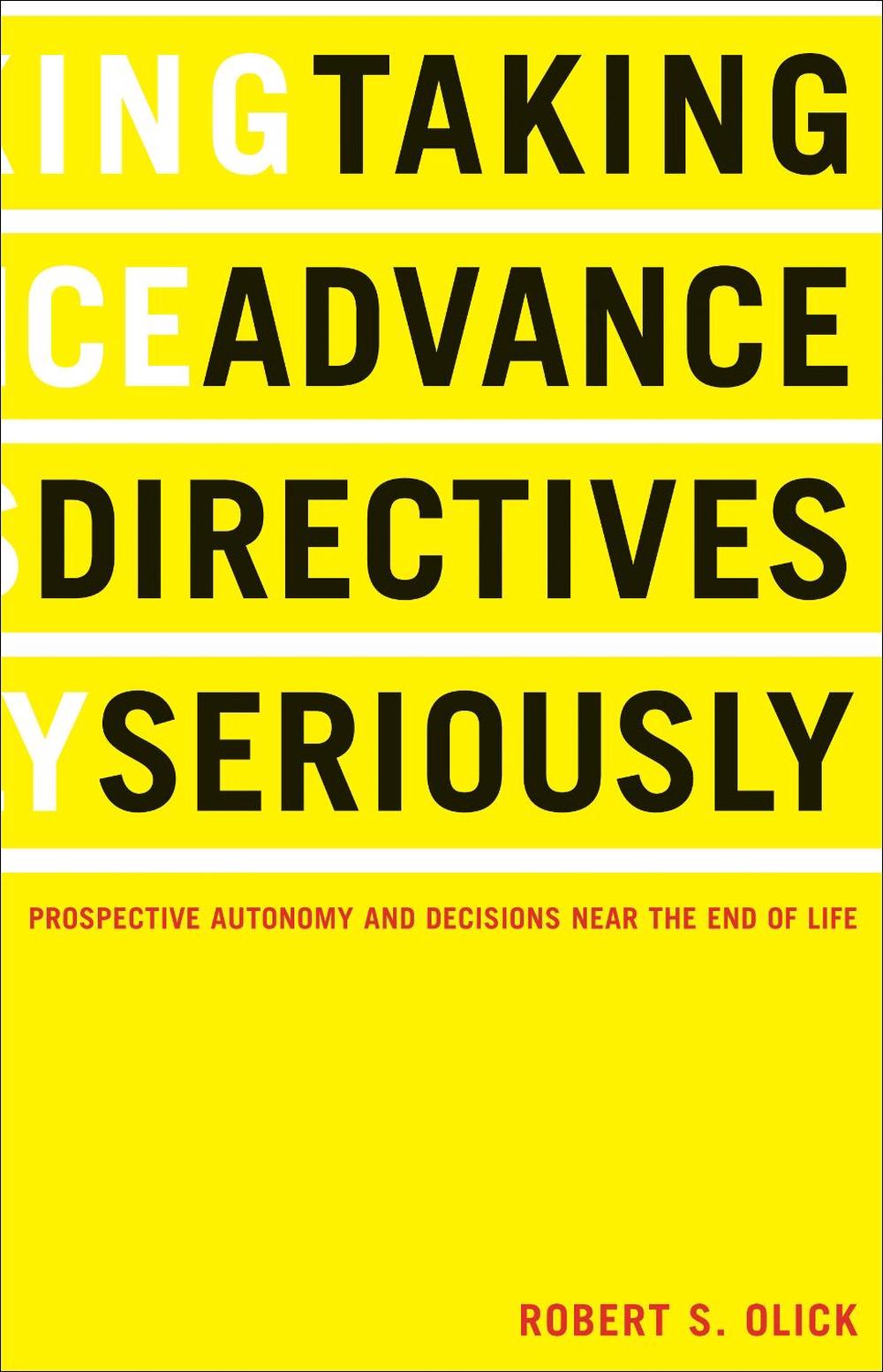
Taking Advance Directives Seriously
prospective autonomy and decisions near the end of life
$175.41
- Paperback
248 pages
- Release Date
2 September 2004
Summary
In the quarter century since the landmark Karen Ann Quinlan case, an ethical, legal, and societal consensus supporting patients’ rights to refuse life-sustaining treatment has become a cornerstone of bioethics. Patients now legally can write advance directives to govern their treatment decisions at a time of future incapacity, yet in clinical practice their wishes often are ignored. Examining the tension between incompetent patients’ prior wishes and their current best interests as well as ot…
Book Details
| ISBN-13: | 9781589010291 |
|---|---|
| ISBN-10: | 1589010299 |
| Series: | Taking Advance Directives Seriously |
| Author: | Robert S. Olick |
| Publisher: | Georgetown University Press |
| Imprint: | Georgetown University Press |
| Format: | Paperback |
| Number of Pages: | 248 |
| Edition: | 1st |
| Release Date: | 2 September 2004 |
| Weight: | 386g |
| Dimensions: | 229mm x 152mm |
You Can Find This Book In
What They're Saying
Critics Review
This book will be an important resource for physicians, medical ethicists, and other health care professionals as they deal with the rights and prerogatives of the dying and the legal and policy questions surrounding the choices to be made in the conduct of their care. New Jersey Medicine Disquieted that the wishes of dying patients do not direct care at the end of life even when their intentions and plans have been put to writing in an advance directive, Olick rethinks and reinvigorates the case for patient and family control in the face of significant challenges to the nature, scope, and importance of autonomy in the care of incompetent dying patients. Book News, Inc. I recommend this book highly to all health care professionals. It is clearly written, and beautifully argued. It was a pleasure to read such lucid prose reflecting clear thinking. It certainly gave a me a different perspective from which to argue for the rights of patients to die in a dignified manner, a topic that is important to all of us, health care professional or not. Nursing Ethics The book is simultaneously a model of scholarship and a work of advocacy that if heeded would dramatically change the way many patients die. Highly recommended for upper-division undergraduate and graduate students and faculty, and essential reading for professionals and practitioners. Choice An important resource for health-care professionals, medical ethicists, and legal scholars who are involved in the legal rights and policy issues surrounding end-of-life decisions. Medical Humanities Review
About The Author
Robert S. Olick
Robert S. Olick is associate professor in the Center for Bioethics and Humanities, SUNY Upstate Medical University. He formerly served as executive director of the New Jersey Bioethics Commission, where he was a principal author and legislative architect of that state’s advance directives law. Dr. Olick is coauthor of the book, The Stored Tissue Issue: Biomedical Research, Ethics, and Law in the Era of Genomic Medicine (2004).
Returns
This item is eligible for free returns within 30 days of delivery. See our returns policy for further details.




